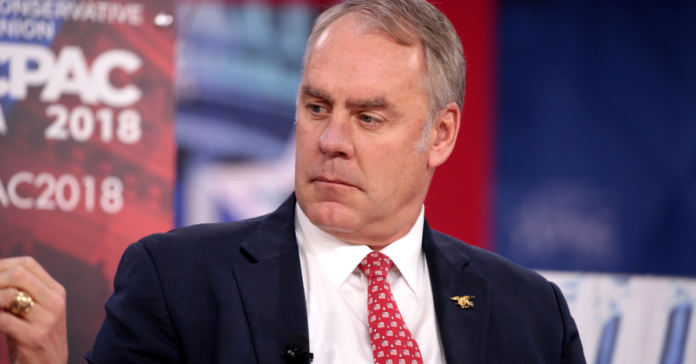Interior Secretary Ryan Zinke made clear that investing in infrastructure will be a priority of the agency over the next year and the agency will use revenues from energy development to help pay for it, during testimony about the Department of the Interior’s (DOI) proposed 2019 budget on Capitol Hill yesterday.
“This budget is a major step towards keeping another one of the president’s promises, rebuilding our infrastructure,” Zinke told the Senate Energy and Natural Resources Committee.
The proposed $11.8 billion Interior Department budget will provide $256.5 million for the National Park Service (NPS) for construction and deferred maintenance projects. In 2017, the deferred maintenance backlog amounted to more than $16 billion, $11 billion of which belonged to the NPS.
The backlog emerges when maintenance projects are postponed due to budgetary constraints or cost saving measures. This has led to the deterioration of facilities—like roads, restrooms, bridges and water mains—in some of the nation’s most popular parks, even as visits to these landmarks are at a record-high.
“All Americans should have the opportunity to enjoy a national park, but without an investment in our infrastructure to go along with the record-setting amount of visitors, we are loving our parks to death,” Zinke said.
To alleviate this funding shortfall, DOI is looking to launch the “Public Lands Infrastructure Fund,” which Zinke identified as a “legislative priority.” To fund the project, DOI will rely on revenues from energy development on public lands—ranging from that of oil and gas to wind and solar.
Under the plan, DOI would deposit half of all revenues paid from these activities that exceed budgetary projections and put the excess revenue toward funding the national park upgrades. The deposits would be capped at $18 billion over 10 years.
Zinke expressed confidence that DOI could reach the $18 billion target based on growth in energy development.
“If you go back to 2008, Interior was the number two generator of revenue in this country behind the IRS [Internal Revenue Service]. It was a banner year but just in offshore oil and gas the revenue was about $18 billion a year. When we first took office it was atrophied down to about $2.6 [billion]—some was market conditions some was not. Given our growth, our projected income…we think we can do it in eight years,” Zinke continued.
DOI’s budget will also continue the Trump Administration’s motto of “energy dominance,” including $199.9 million in funding for the Bureau of Safety and Environmental Enforcement to streamline permitting processes and fund safety, training, and inspections.
Committee members questioned Zinke about plans to move the headquarters of the Bureau of Land Management (BLM) to the West, and how DOI plans to reorganize the way it’s divided across geographic regions.
“As a retired navy seal commander I believe in giving more authority to the front lines where it should reside so decisions can be made at the local level rather than in Washington, D.C.,” Zinke said. “Clearly the one-size-fits-all model has been ineffective.”
The new DOI reorganization would rely upon “watershed, science and wild life patterns” to create districts that are more unified than the current layout.
Western leaders have welcomed the idea to revise DOI’s regions, and Zinke indicated he has been in contact with state governors to discuss the reorganization plan. The agency redrew boundaries in February after state leaders expressed concern about dividing states across multiple regions.
Zinke noted that in five years, 40 percent of DOI’s workforce will be of retirement age, opening an opportunity to move BLM assets from Washington, D.C. to the West.
“Looking at a replacement as people retire, looking at pushing more assets out West. It makes a difference if you’re a GS-5, a GS-7, where you live. San Francisco, Seattle, Washington, D.C., are very expensive cities,” Zinke said. “We are looking at smaller communities, particularly in areas like BLM, and in these different regions where Interior folks, entry level can enjoy a quality of life, have a chance to buy a house, have a chance to have good schools, good hospitals. We haven’t determined where, we think we’ll probably have three candidates within the different regions for that.”
Sen. Cory Gardner (R-Colo.) received welcome news after asking Zinke about $18 million in oil and gas revenues due to Western Colorado communities that DOI had been holding for nearly a decade.
“The check is in the mail,” Zinke told Sen. Gardner.
“That is damn big news,” replied Sen. Gardner.
I agree w @SENCORYGARDNER, it’s “damn good news” that #Colorado will finally get $18 million in energy revenue they are due after a decade
— Secretary Ryan Zinke (@SecretaryZinke) MARCH 13, 2018
Zinke will testify about DOI’s reorganization plans in greater detail during tomorrow’s House Natural Resources Committee hearing.

